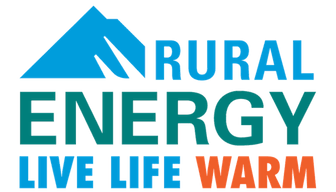How to Troubleshoot and Prevent Oil Smells in Your Home with Direct-Vent Heaters
An oil smell in your home can be unpleasant and signal issues with your direct-vent heater. These odors can stem from several causes, including improper installation, poor fuel quality, or environmental factors like wind. Resolving this issue ensures a comfortable living space and protects your heater’s efficiency and lifespan. This guide will explore the common causes of oil smells, how to fix them, and how to prevent them in the future. With expert advice from Rural Energy Enterprises (REE), you’ll be equipped to handle any oil smell-related challenges.
1. The Break-In Period: Why New Heaters Smell Like Oil
How to Identify:
If your direct-vent heater is newly installed and has run for fewer than 3–4 cumulative hours, the odor may be caused by burning organic binders in the unit's gaskets.
How to Fix:
Allow the unit to operate continuously for at least 3–4 hours to complete this natural break-in process. If the smell persists beyond this period, it may indicate another issue requiring professional inspection.
Preventive Tips:
- Schedule your installation when the unit can run uninterrupted for several hours.
- Ask your installer to inspect for any other potential odor-causing factors during setup.
2. Heater Sizing Matters: Avoiding Short Cycling
How to Identify:
Heaters that are too large for the space they serve tend to short—cycle, frequently turning on and off. This can result in incomplete combustion, which can lead to unpleasant smells.
How to Fix:
Consult a local HVAC expert or Rural Energy Enterprises to confirm that your heater is appropriately sized for your room or home. If your heater is oversized, consider upgrading to a properly sized unit or adjusting your usage patterns to minimize short cycling.
Preventive Tips:
- Determine the correct heater size for your space.
- Regularly evaluate your home’s heating needs, especially after renovations or changes in insulation.
3. Flue Pipe Issues: Combating Wind and Poor Installation
How to Identify:
Strong winds from certain directions can disrupt the airflow in and out of your flue pipe, negatively affecting combustion and causing odors. Improperly installed or missing flue pipe extensions can exacerbate the problem.
How to Fix:
Install a windbreak to shield the flue pipe from side or headwinds. Verify that flue pipe extensions are installed correctly and meet the manufacturer’s specifications.
Preventive Tips:
- Position the flue pipe away from prevailing winds or obstructions.
- Periodically inspect the flue pipe for signs of damage, debris, or improper alignment.
4. Fuel Tank Troubles: Pressure, Additives, and Quality Excessive Fuel Pressure
How to Identify:
If your heater receives fuel at more than 2.0 psi (137.8 mbar), the excess pressure can push fuel past the constant-level valve, leading to odors and inefficient operation.
How to Fix:
Install a fuel pressure-reducing valve to maintain proper fuel flow. Ensure the fuel tank is positioned correctly to minimize pressure buildup.
Fuel Additives: Less Is More How to Identify:
Overuse of fuel additives can disrupt the air-to-fuel ratio in your heater, leading to odor problems.
How to Fix:
Use only minimal amounts of anti-gel agents or biocides. Follow the manufacturer’s instructions for correct measurements based on your tank’s fuel volume.
Contaminated or Low-Quality Fuel How to Identify:
Fuel that contains water, debris, or excessive sulfur can cause incomplete combustion and produce strong odors.
How to Fix:
Switch to fuel that meets ASTM specifications and is low or ultra-low in sulfur. To avoid contamination, inspect and clean your tank regularly.
Preventive Tips:
- Purchase fuel from reputable suppliers.
- Use filters to prevent debris from entering your system.
5. Handling and Transit Damage
How to Identify:
Gaskets in the unit, such as the Joint Packing Gasket or Pressure Relief Valve Gasket, can become compromised during harsh handling or transit, resulting in leaks and odors.
How to Fix:
During installation, inspect the gaskets. Contact Rural Energy Enterprises or the manufacturer for replacements if you notice damage.
Preventive Tips:
- Handle heaters carefully during transport and installation.
- Use professional services for delivery and setup to reduce the risk of damage.
6. Regular Maintenance: The Key to Odor-Free Heating
Maintenance is critical for keeping your direct-vent heater functioning efficiently and odor-free. Schedule routine inspections and cleanings to address potential issues early.
Checklist for Regular Maintenance:
- Inspect Fuel Filters and Lines: Ensure they are free of kinks, blockages, or restrictions.
- Clean the Flue Pipe: Remove any debris or buildup that could impact airflow.
- Test Fuel Pressure: Verify that the tank delivers fuel within the recommended pressure range.
- Check for Proper Combustion: Look for signs of incomplete combustion, such as soot or odors, and address them promptly.
FAQs: Frequently Asked Questions About Oil Smells in Direct-Vent Heaters
Q: Why does my new heater smell like oil?
A. New heaters often emit odors due to burning organic binders in their gaskets. To resolve this, allow the unit to operate continuously for at least 3–4 hours.
Q: Can I use any fuel additive in my heater?
A. No, only use anti-gel agents or biocides in small, measured quantities. Avoid excessive additives, as they can disrupt the air-to-fuel ratio.
Q: How do I know if my flue pipe is installed correctly?
A. Properly installed flue pipes should be aligned with manufacturer guidelines and protected from prevailing winds. Improper installation can disrupt airflow and cause odors.
Q: What should I do if my fuel tank pressure is too high?
A. Install a fuel pressure-reducing valve to regulate fuel flow and prevent odors caused by excessive pressure.
Contact Rural Energy for Expert Assistance
If you’re struggling with oil smells or need professional advice on maintaining your direct-vent heater, Rural Energy is here to help. Contact us today at 800.770.7330 or visit www.ruralenergy.com to schedule a consultation or learn more about our high-efficiency heating solutions.
